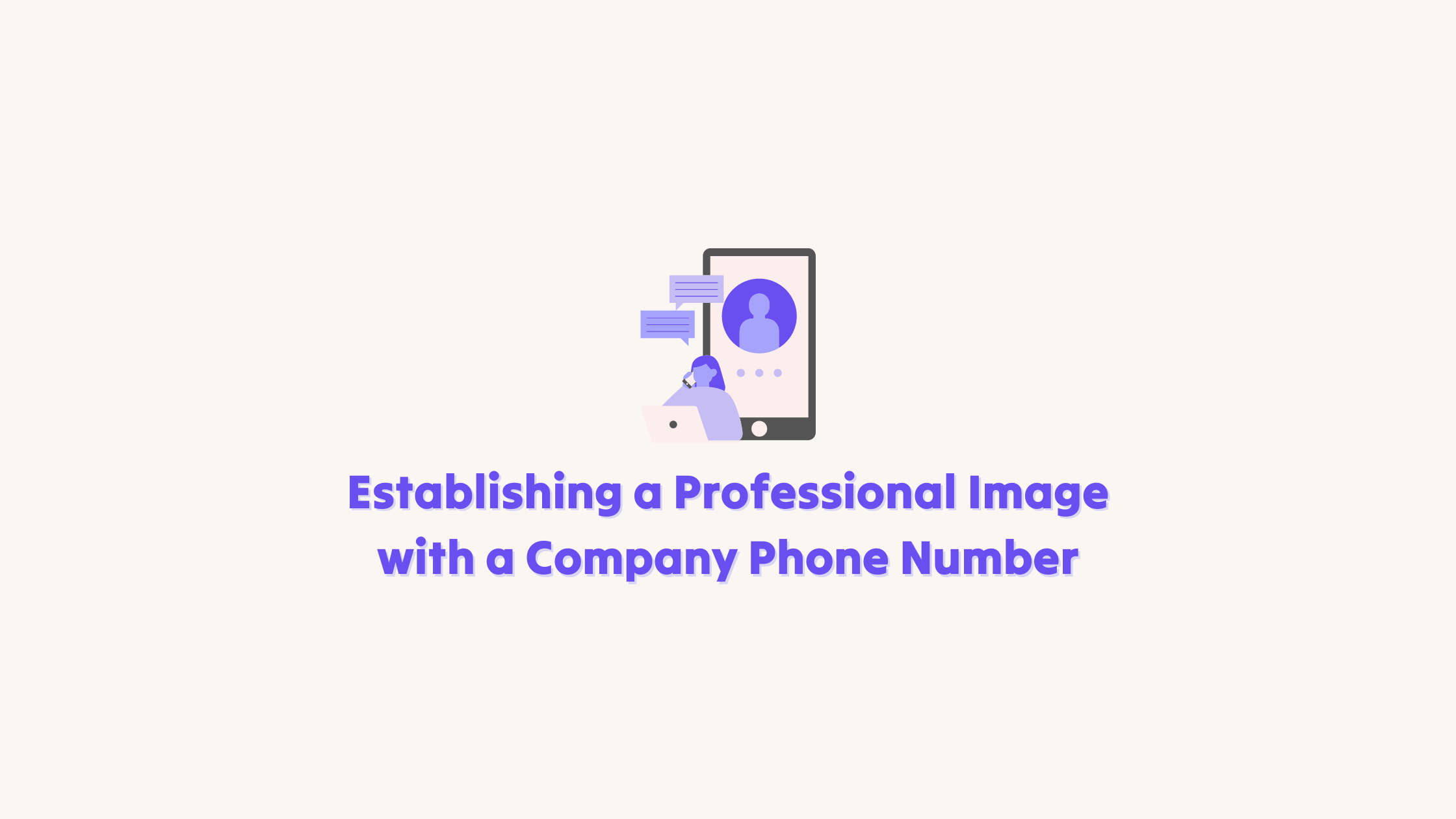Company Phone Number: Establishing a Professional Image
| By Kim Hoang | 0 Comments

Key Takeaways
- A dedicated company phone number is crucial to establishing credibility, conveying professionalism, separating personal and professional calls, and allowing for branding opportunities.
- There are various types of company phone numbers available, including landline numbers and mobile numbers. Each type serves specific purposes and offers unique advantages for businesses.
- Getting a company phone number can be done through phone service providers like BT or O2 for landline and mobile phone numbers…
- The most convenient way to obtain a company phone number is by signing up with a virtual business phone number provider.
It’s a common misconception that small businesses cannot establish a professional image to the level that a large corporation can. While bigger companies may have the resources more readily available to them, smaller companies are still able to enhance their professional image with a few tweaks. One of which is to invest in a company phone number.
Importance of a Company Phone Number
Having a dedicated company phone number plays a crucial role in enhancing the professional image of a business. It serves as a distinct point of contact for clients, customers, and other stakeholders, establishing a sense of credibility and reliability. A company phone number conveys professionalism and demonstrates that the business is committed to effective communication.
It also helps in separating personal and professional calls, ensuring that important business inquiries are promptly attended to. A dedicated phone number also allows for branding opportunities, as it can be customised with a memorable and relevant combination of digits. By investing in a company phone number, businesses can significantly elevate their professional image, build trust with their target audience, and ultimately foster stronger relationships with customers and clients.
Types of Company Phone Numbers
There are various types of company phone numbers you can get:
- A landline number – these are numbers tied to a specific location. These numbers usually start with an area code associated with the location eg. landline numbers from London start with 020. Landline numbers help businesses to establish a local presence and can be advantageous for targeting customers in a particular region.
- Toll-free numbers – also known as freephone numbers. These numbers allow callers to reach a business without incurring any calling fees eg. international charges. These numbers typically begin with 0800 or 0808 in the UK. Toll-free numbers encourage inquiries from customers due to the convenient nature of contacting these numbers.
- A mobile number – mobile numbers are usually associated with individual and personal use however many small businesses are opting for mobile numbers in the earlier stages. They’re great for business owners and freelancers as it allows customers to directly contact a person from the business.
- A ‘golden number’ – sometimes referred to as a ‘vanity number’ are phone numbers with a specific order of digits. This can be landline or mobile numbers. They are memorable, brand-building tools that make it easier for customers to remember and contact a business.
- International phone number – An international phone number allows businesses to establish a local presence in foreign markets. It enables customers from other countries to contact the business without incurring high international calling charges.
- Virtual phone number – A virtual phone number operates over the internet rather than traditional phone lines. It allows businesses to have a phone number without being tied to a physical location. This allows teams to work remotely. Virtual numbers can be both a landline number or a mobile number.
How to Obtain a Company Phone Number
There are various ways you can get a company phone number and the process is not as complicated as it may seem! There are both paid-for options and free options. However, we recommend finding a paid option that fits within your budget for business use as they are more reliable for long-term use.
To get a landline, mobile number, or toll-free number, you’ll need to contact a phone service provider like BT or O2. They will be able to set you up with an account and provide you with a number. However, please note that BT Openreach (the company responsible for landline technology across the country) is shutting down landline services by 2025. Therefore many providers are no longer providing new landline phone numbers. You will also need to discuss with the provider if you are looking for a golden number and please note that golden numbers are often offered for an additional fee.
However, getting an international phone number may be more difficult. This involves researching and finding service providers in your chosen country, then contacting them to sign up. You may need to provide certain documents depending on the provider’s requirements. Bear in mind that the process will take longer to complete than obtaining a business phone number in the UK. It’s also worth noting that if you use an international phone number in the UK, you may incur roaming charges.
The most convenient way to get a company phone number is from a virtual phone number provider. They’re able to provide you with the different types of company phone numbers depending on what you need. The process is also much quicker as, to set up your number you will usually only require a smartphone and internet connection to download the virtual phone number provider’s app. Signing up for a virtual phone number can be done by yourself on the provider’s website or if you require more specific features or a tailored package, you can get in touch with their sales teams.
Enhancing your professional image with a Devyce business number
Devyce is the complete business communications system designed for SMEs. Get more than a business phone number. The Teams Management Portal is where you take control of your company-wide communications by viewing key metrics, setting up call forwarding, and managing the call activity of your employees. You can easily add or remove phone numbers from your company network, giving you full control and visibility over your business communications.
Create a seamless customer-first experience by allowing your employees to stay connected, wherever they are. All you’ll need is a stable WiFi/data connection. Elevate your business communications with Devyce Teams today!


